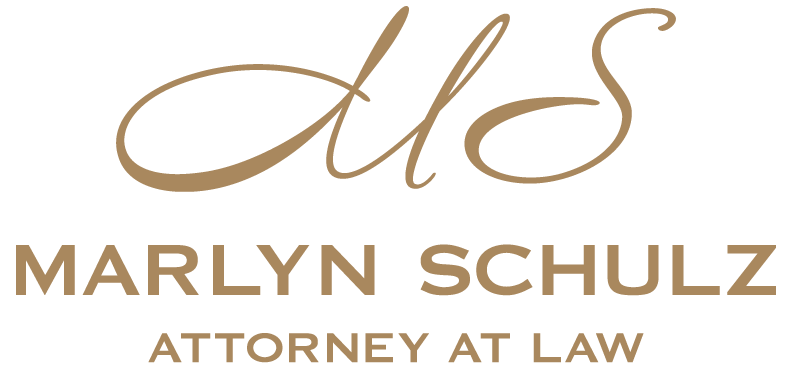Succession Planning for the Business Owner
A comprehensive business succession plan typically includes several key documents aimed at ensuring a smooth transition of ownership and management of the business. In this article, I outline some of the main documents commonly included and how a successful succession plan goes hand in hand with estate planning.
Key Documents for Succession Planning
- Buy-Sell Agreement: This agreement outlines the terms and conditions under which the business ownership will be transferred upon the occurrence of certain triggering events such as death, disability, retirement, or voluntary/involuntary departure of an owner. It typically specifies who can buy the departing owner’s share, at what price, and under what terms.
- Will or Trust: A will or trust may be necessary to specify how the owner’s share of the business will be distributed upon their death. This document ensures that the owner’s wishes regarding the business are carried out in the event of their passing.
- Operating Agreement or Shareholder Agreement: For businesses structured as limited liability companies (LLCs) or corporations, respectively, these agreements govern the management structure, decision-making processes, and rights and responsibilities of owners/shareholders. They may include provisions related to succession planning and the transfer of ownership interests.
- Power of Attorney: This document authorizes a trusted individual to make decisions on behalf of the business owner if they become incapacitated or are otherwise unable to make decisions themselves.
- Business Continuity Plan: While not strictly a legal document, a business continuity plan outlines procedures for maintaining business operations during disruptions, including succession events. It may include information on key personnel, critical processes, and contingency measures.
- Employment Contracts or Agreements: These documents may include provisions related to the employment of key personnel who are critical to the business’s success and may play a role in the succession plan. They can outline terms such as compensation, duties, non-compete clauses, and succession-related provisions.
- Insurance Policies: Life insurance, disability insurance, and key person insurance are often part of a succession plan to provide liquidity for the purchase of the departing owner’s share or to protect the business against financial losses resulting from the departure of key individuals.
- Financial Documents: These include financial statements, valuations of the business, and any other relevant financial information that may be necessary for the execution of the succession plan, such as determining the fair market value of the business or evaluating financing options
Crafting the right succession plan for business owners
- Smooth Transition of Ownership: A well-designed succession plan ensures a smooth transition of ownership when the current owner(s) retire, become incapacitated, or decide to exit the business. Without a plan in place, the transition process can be chaotic and may lead to disputes among family members, business partners, or stakeholders.
- Preservation of Business Value: A succession plan helps preserve the value of the business by providing a clear roadmap for how ownership will be transferred and how the business will continue to operate effectively during and after the transition. This can help maintain the confidence of customers, employees, and investors, minimizing disruptions to operations and preserving the business’s reputation and market position.
- Minimization of Tax Liability: Proper succession planning can help minimize tax liabilities associated with the transfer of ownership, such as estate taxes, gift taxes, and capital gains taxes. By utilizing tax-efficient strategies and structures, business owners can transfer assets to successors while maximizing tax benefits and preserving wealth for future generations.
- Protection of Family Wealth: For family-owned businesses, succession planning is essential for protecting and preserving family wealth. Without a plan, the business’s value could be eroded or lost altogether, leading to financial insecurity for family members and potential conflicts over inheritance.
- Retention of Key Talent: A well-executed succession plan can help retain key talent within the organization by providing clear career paths and opportunities for advancement. Employees are more likely to remain loyal and committed to a company that demonstrates stability and a long-term vision for growth and development.
- Continuity of Operations: Business succession planning ensures continuity of operations by identifying and preparing successor(s) to assume leadership roles and continue running the business effectively. This reduces the risk of disruption to customers, suppliers, and other stakeholders, safeguarding the business’s ongoing viability and success.
- Peace of Mind: Having a succession plan in place provides peace of mind for business owners, knowing that their legacy will be preserved and their hard work will continue to benefit future generations. It also allows owners to retire or step back from day-to-day operations with confidence, knowing that the business is in capable hands.
The Intersection of Succession Planning and Personal Estate Planning
A business owner’s personal estate plans or those of a family office are incomplete without a carefully crafted business succession plan. Entrusting the future of the business to chance or relying on conflicting family assumptions can result in costly and disastrous consequences that require extensive remedies. At Marlyn Schulz, Attorney at Law, we specialize in strategically organizing business succession and personal estate planning. Crafting plans that complement and support one another creates peace of mind, protects business and personal assets, reduces risk, and ensures a smooth transition for all when the inevitable happens.



